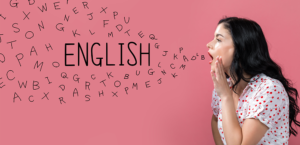
The Secret to Sounding Natural When You Speak English
Here’s the secret to sounding natural when you speak English – understand that English is a stress-timed language!
Most Languages are Syllable-Timed
Most of the world’s languages are syllable-timed. That means that all syllables in a word take about the same amount of time to say. Vowels are usually all pronounced as they should be, and pronunciation is a little easier and a little more predictable!
Spanish, French, and Cantonese are examples of syllable-timed languages.
What Is a Stress-Timed Language?
Speakers of stress-timed languages will spend more time on the stressed syllables of a word, and less time on unstressed syllables. English, German, Thai and Russian are examples of stress-timed languages.
This gives English and other stress-timed languages a kind of rhythm. If you listen carefully for this rhythm, you will hear it! With practice, you can learn this rhythm, and your English will sound more natural. We’ll talk about this more in another post.
How Does Stress-Timing Work?
How do these unstressed syllables become shorter and less emphasized? In the unstressed syllables, vowels will “reduce.” They will become very short and quiet, and lose their pure sound. Usually, they become the “schwa” sound – an “uh” sound that can be said quickly so the speaker can move on to the next stressed syllable.
Any vowel in an unstressed syllable can become a schwa sound. Listen to these words and see if you can hear the “uh” of the reduced vowel. One word has two schwas – can you hear them?
banana
family
about
president
problem
support
album
sofa
photograph
The schwa sound is very similar to the short “open” u sound – but your mouth stays more relaxed. Check out this post on short u, and this post on the schwa sound to learn more, and to hear and practice the difference.
How Will I Know When to Reduce a Syllable?
This is why it is so important to listen to spoken English! There are a few rules to help you find the stressed syllables in a word, but the best and easiest way is for you to hear the word spoken.
Listen for the pure vowel sounds, and listen for the “uh” of the schwa.
Leave a comment below and tell me what you think! What words can you think of that have a schwa sound in an unstressed syllable? If you’re a more advanced English learner, here’s a tough question for you – what consonant can also become a schwa? Let me know what you think!


Pingback: Reducing Structure Words in English - Learn English With the Bible
Pingback: Elementor #741 - Learn English With the Bible
Pingback: More About Stress-Timed English - Learn English With the Bible